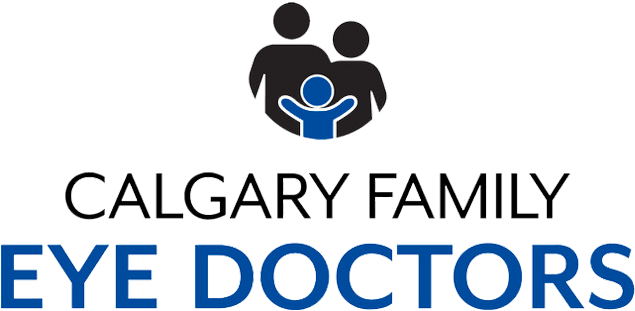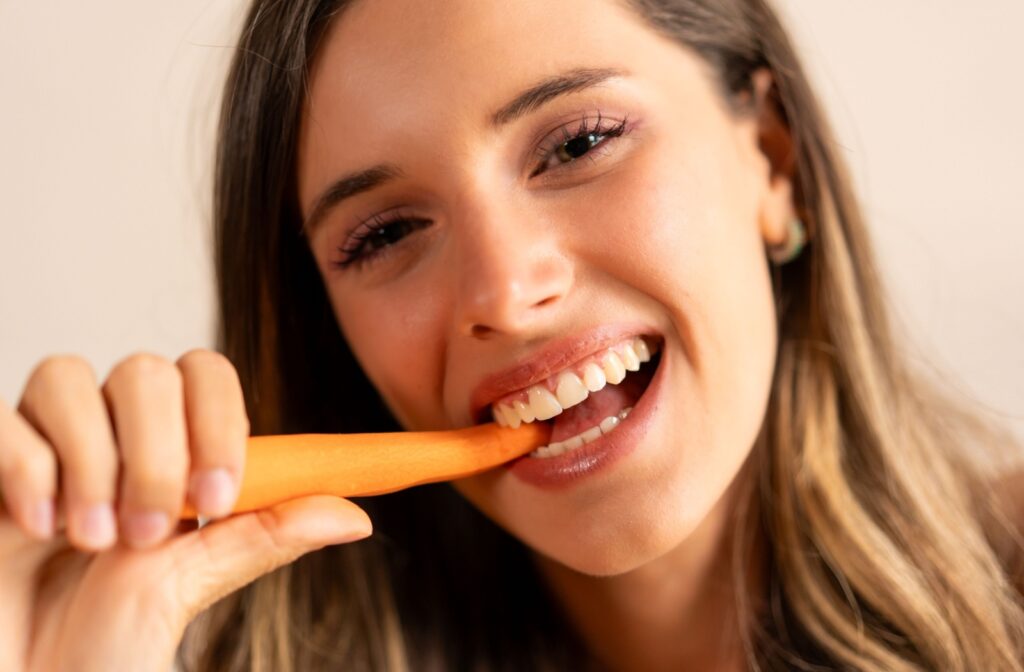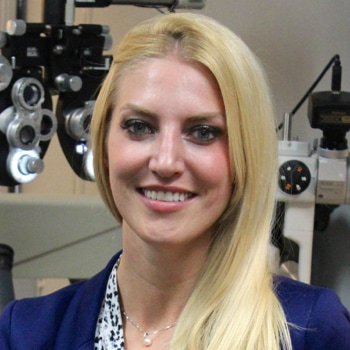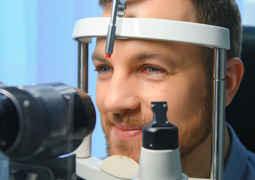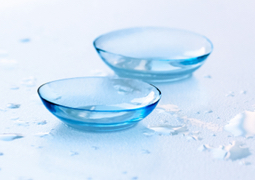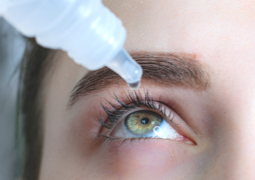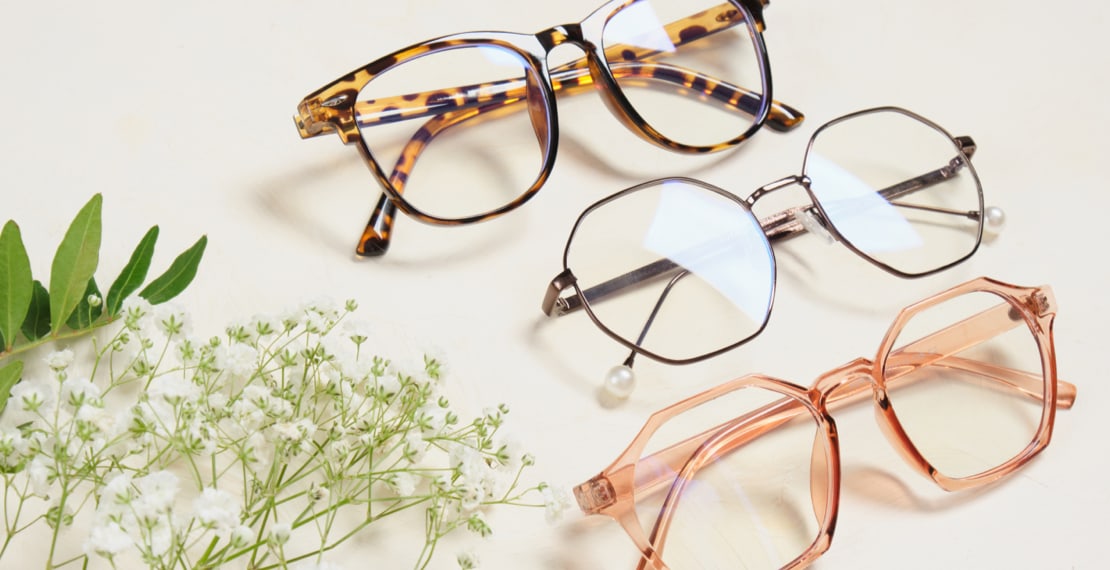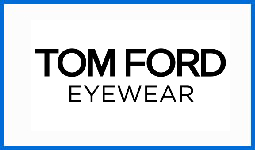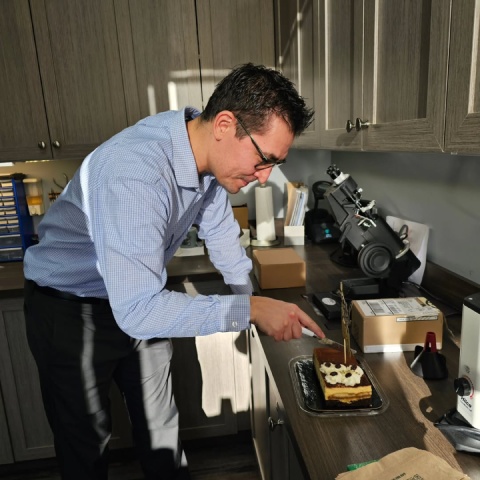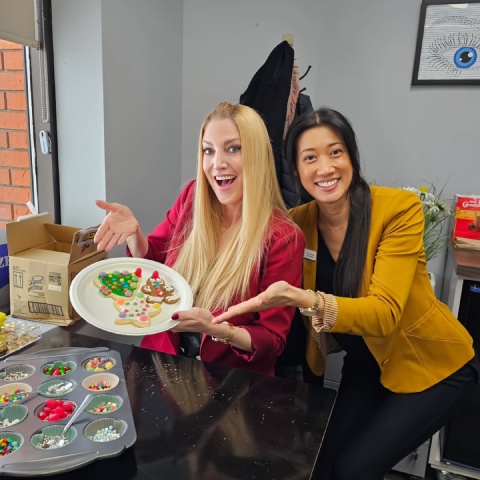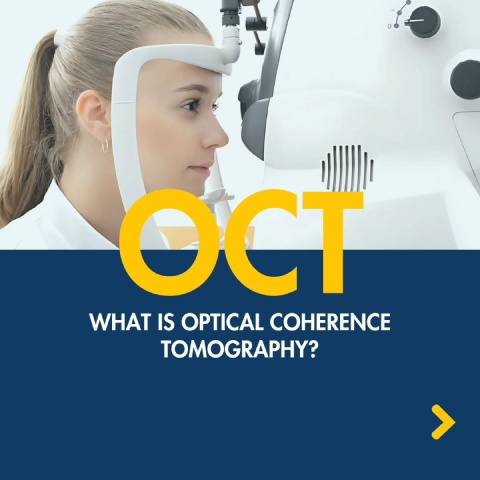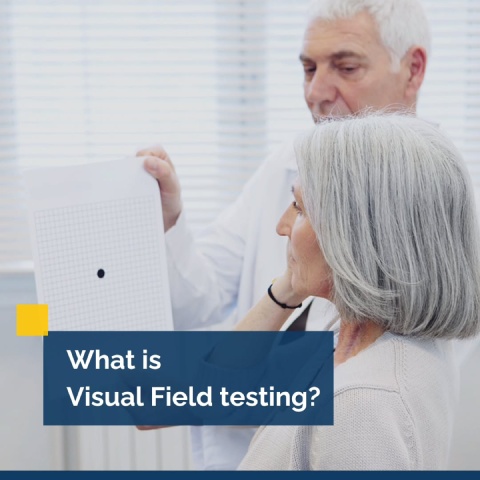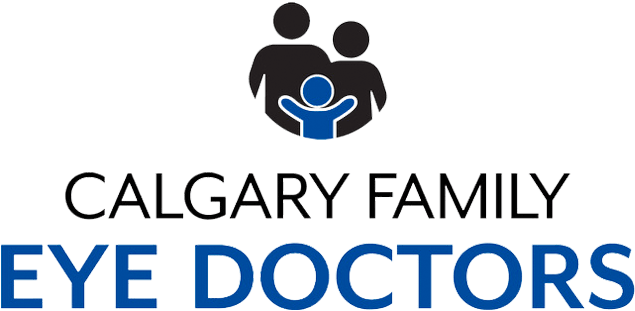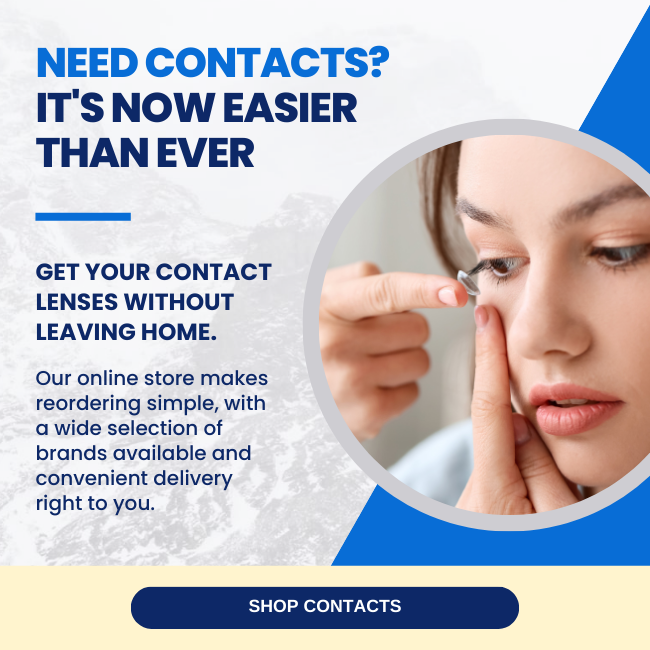Carrots have long been hailed as a miracle food for eyesight. The popular belief that munching on these orange veggies can give you eagle-eyed vision has been passed down through generations. But is there any truth to this claim, or is it just a well-meaning myth?
Carrots are packed with beta-carotene, which is very good for your eyes! But they’re just one piece of the puzzle. A healthy diet and proper eye care are essential for maintaining good eyesight. So, when your world is blurry, it’s generally better to reach for your glasses than a carrot.
What Is the Connection Between Carrots & Eye Health?
Carrots are rich in beta-carotene, a pigment that gives them their vibrant orange colour. Our bodies convert beta-carotene into vitamin A, which is essential for eye health.
Vitamin A is crucial in forming rhodopsin, a light-sensitive pigment in the retina that helps us see in low-light conditions.
Vitamin A is also vital for maintaining the health of the cornea, the clear outer layer of the eye, as well as the lens, conjunctiva, and macula. It may also help prevent certain eye diseases, such as cataracts and age-related macular degeneration (AMD).
Debunking the Carrot Myth
While carrots are often touted as a miracle for eyesight, the reality is more nuanced. While they can contribute to healthy vision, they won’t necessarily give you superhuman sight.
Vitamin A deficiency is a significant global health concern, leading to preventable blindness, particularly in children. Carrots can help prevent vision problems caused by vitamin A deficiency rather than dramatically improve eyesight, but they are just one source of beta-carotene.
Other foods high in this essential nutrient include:
- Squash
- Pumpkin
- Kale
- Red pepper
- Sweet potatoes
- Apricots
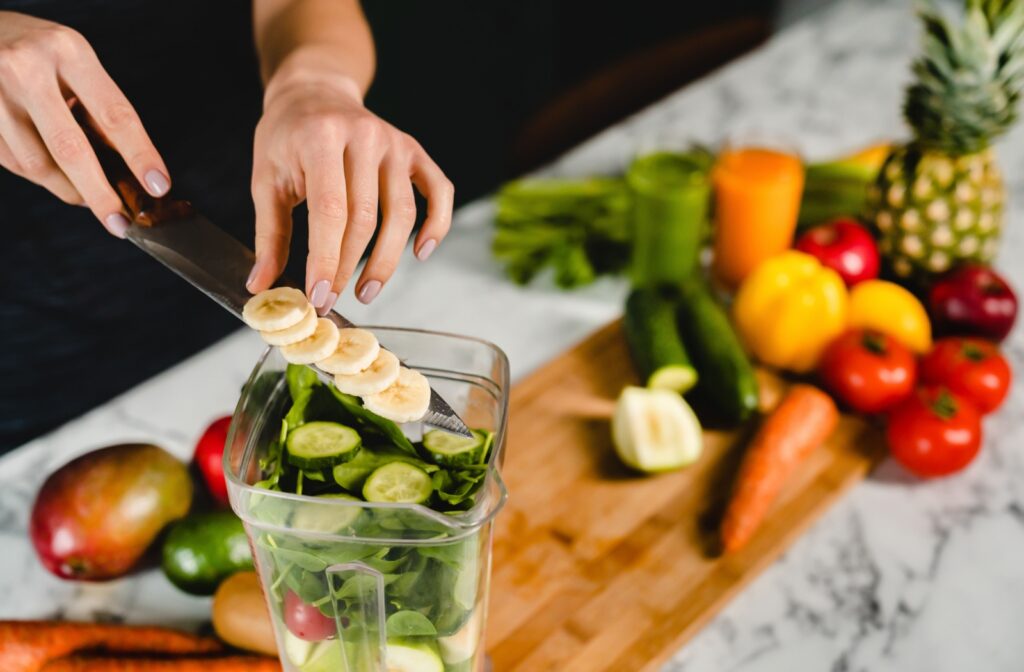
Eye Health Is More Than Just Beta-Carotene
While beta-carotene is a key part of your vision, it isn’t the only way to boost your eye health. Other nutrients also play a vital role in maintaining good vision, such as:
- Lutein and zeaxanthin: These antioxidants, found in green leafy vegetables like spinach and kale, help filter blue light and support retinal health.
- Omega-3 fatty acids: Present in fish like salmon and mackerel, omega-3s help keep the eye’s tear film healthy and can prevent dry eye syndrome.
- Vitamins C and E: These antioxidants are found in fruits like oranges and nuts like almonds and protect the eye from oxidative damage.
- Vitamin B: Some studies suggest B vitamins, particularly B3 and B12, help reduce the risk of age-related macular degeneration and support overall brain health, which is closely linked to visual processing.
- Zinc: This essential mineral, found in foods like oysters, nuts, and beans, is crucial for maintaining a healthy retina and may help slow age-related macular degeneration. Zinc plays a key role in producing melanin, a pigment that protects the eyes from harmful light.
Tips for Eye-Healthy Eating
Incorporating eye-healthy foods into your daily meals doesn’t have to be difficult. Here are some practical tips.
- Eat plenty of fruits and vegetables, especially leafy greens and carrots.
- Choose lean protein sources, like fish, poultry, beans, and legumes.
- Incorporate healthy fats into your meals and snacks, from nuts, seeds, avocado, and olive oil.
- Limit processed foods and sugary drinks.
- Stay hydrated by drinking plenty of water.
These small changes can make a big difference in your eye health over time.
Regular Eye Exams Are Essential
While diet plays a crucial role, routine eye exams are equally important. An eye exam can detect problems before they become serious and help your eyes get the necessary care.
Optometrists can provide personalized advice on maintaining eye health, including suggestions on whether you should adjust your diet to avoid any vitamin deficiencies. Eye exams are more than just updating your family’s prescriptions—they’re one of the best ways to monitor your overall health.
Let Us Be Your Partner in Eye Health
At Calgary Family Eye Doctors, we understand the importance of taking a holistic approach to eye care. While carrots won’t give you super vision, they’re an important piece of the puzzle. For the rest, our team of experienced professionals is dedicated to providing you with the best care we can, from comprehensive eye exams to personalized eye-healthy dietary advice.
Take the next step in maintaining your eye health by booking an appointment with us today. We’re here to help you see the world more clearly, one eye exam at a time.
